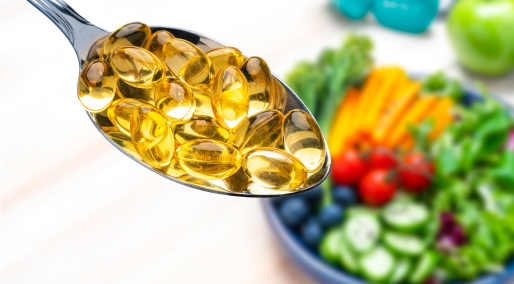- For the home
Health
- Bones and Joints
- Digestion and Healthy GI
- Essential Oils
- Fish Oil / Omega-3
- Healthy Sleep
- Heart and Cardiovascular System
- Immunity
- Liver
- MCT Oil
- Men
- Mind and Focus
- Minerals
- Pet Supplements
- Pro-Health Supplements
- Probiotics
- Senior
- Superfoods
- Urinary Tract
- Vitamins
- Vitamins for hair
- Vitamins for nails
- Vitamins for the skin
- Weight Management
- Woman
Healthy Diet
Herbs
Mother and Baby
Sport
Your Goal
Pet Supplements
Cosmetics
- Cosmetics for children
- Men's Cosmetics
- Unisex Cosmetics
- Women's Cosmetics
- Dezodoranty i perfumy
- Higiena jamy ustnej
- Kosmetyki akcesoria
- Kosmetyki dla dzieci2
- Kosmetyki do ciała
- Kosmetyki do higieny intymnej
- Kosmetyki do opalania
- Kosmetyki do pielęgnacji ust
- Kosmetyki do twarzy
- Kosmetyki do włosów
- Papier toaletowy / chusteczki
L-Arginine
(total products: 30)For the home
Health
Bones and Joints
Digestion and Healthy GI
Essential Oils
Fish Oil / Omega-3
Healthy Sleep
Heart and Cardiovascular System
Immunity
Liver
MCT Oil
Men
Mind and Focus
Minerals
Pet Supplements
Pro-Health Supplements
Probiotics
Senior
Superfoods
Urinary Tract
Vitamins
Vitamins for hair
Vitamins for nails
Vitamins for the skin
Weight Management
Woman
Healthy Diet
Herbs
Mother and Baby
Sport
Your Goal
Pet Supplements
Cosmetics
Cosmetics for children
Men's Cosmetics
Unisex Cosmetics
Women's Cosmetics
Dezodoranty i perfumy
Higiena jamy ustnej
Kosmetyki akcesoria
Kosmetyki dla dzieci2
Kosmetyki do ciała
Kosmetyki do higieny intymnej
Kosmetyki do opalania
Kosmetyki do pielęgnacji ust
Kosmetyki do twarzy
Kosmetyki do włosów
Papier toaletowy / chusteczki
New products
Promotions
Recommended products
Short expiration dates
What advantages does l-arginine
L-arginine is associated with several potential health benefits, including:
-
Improved cardiovascular health: L-arginine is a precursor to nitric oxide, which helps to relax blood vessels and improve blood flow. This may help to lower blood pressure and reduce the risk of cardiovascular disease. Recommended for people who want to lower high blood pressure, combine well with the amino acid citrulline. The combination of these supplements will help reduce blood pressure and blood sugar.
-
Improved exercise performance: L-arginine may help to improve exercise performance by increasing blood flow to muscles, reducing fatigue, and improving endurance.
-
Wound healing: L-arginine plays a role in the synthesis of proteins, which are important for tissue repair and wound healing.
-
Immune system support: L-arginine is involved in immune function, helping to support the activity of white blood cells and other immune cells.
-
Erectile dysfunction: L-arginine may help to improve erectile dysfunction by increasing blood flow to the penis.
-
Reduced inflammation: L-arginine has anti-inflammatory properties and may help to reduce inflammation in the body.
It's important to note that while L-arginine is generally safe for most people when taken in recommended doses, it may interact with certain medications and medical conditions. Therefore, it's always recommended to speak with a healthcare professional before starting any new supplement regimen.
L-arginine contraindications
While L-arginine is generally safe for most people when taken in recommended doses, there are some contraindications to be aware of. These include:
-
Herpes simplex virus: L-arginine may increase the replication of the herpes simplex virus, which can cause outbreaks of cold sores or genital herpes. Individuals with a history of herpes should use L-arginine supplements with caution.
-
Low blood pressure: L-arginine may lower blood pressure, which can be problematic for individuals with already low blood pressure or those taking medications to lower blood pressure.
-
Recent heart attack: L-arginine may increase the risk of death in individuals who have recently had a heart attack.
-
Kidney disease: L-arginine is cleared from the body by the kidneys, so individuals with kidney disease may need to avoid L-arginine supplements or use them with caution.
-
Pregnancy and breastfeeding: The safety of L-arginine supplements during pregnancy and breastfeeding is not well established, so it's best to avoid them or use them with caution.
-
Bleeding disorders: L-arginine may increase the risk of bleeding in individuals with bleeding disorders or those taking blood-thinning medications.
L-arginine supplementation
L-arginine supplements are available in several forms, including capsules, tablets, and powders. The recommended dose of L-arginine can vary depending on the reason for use, age, and overall health status.
The typical recommended dose of L-arginine for general health and cardiovascular support is between 2-6 grams per day, taken in divided doses throughout the day. For athletic performance, the recommended dose is usually between 6-8 grams per day, taken 30 minutes before exercise.
It's important to follow the manufacturer's instructions when taking L-arginine supplements, as the recommended dose may vary depending on the product.


















